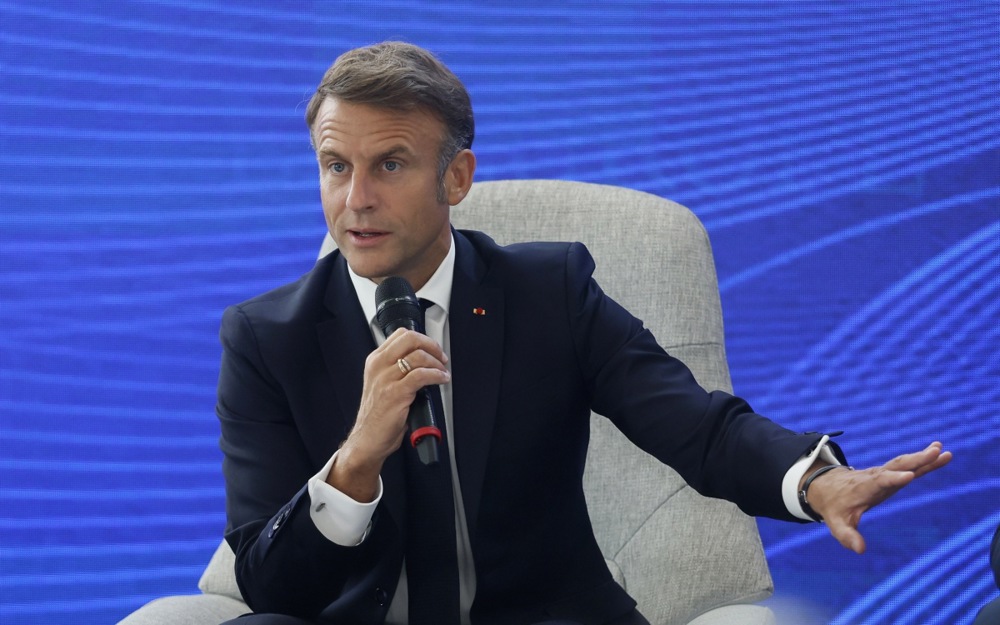The European Union has blasted the Biden administration’s decision to impose export restrictions on high-powered microchips used to power artificial intelligence.
Announced on January 13, the new rules will impact some EU countries and not others, with Ireland, the Netherlands, Belgium, Denmark, Spain and Finland exempt from the new rules. All G7 states and Norway will also be exempt.
The rest of the European Union will have to obey licensing restrictions, with the White House placing limits on the number of high-powered graphics processing units (GPUs) — the most frequent kind of chip used to power artificial intelligence — they can import per year.
Brussels has reacted to the move with anger, with the European Commission saying in a January 13 statement that it has written to the White House to protest against the move.
“We are concerned about the US measures adopted today restricting access to advanced AI chip exports for selected EU Member States and their companies,” a statement issued by the Commission’s tech vice-president Henna Virkkunen and Grean Deal commissioner Maroš Šefčovič reads.
“We have already shared our concerns with the current US administration and we are looking forward to engaging constructively with the next US administration.”
“We are confident that we can find a way to maintain a secure transatlantic supply chain on AI technology and super computers, for the benefit of our companies and citizens on both side of the Atlantic,” they added.
Europe should focus on developing its own brand of artificial intelligence (AI) and leave the issue of its regulation for later, French President Emmanuel Macron has said. https://t.co/obl4S4FwEm
— Brussels Signal (@brusselssignal) September 2, 2024
The Biden administration is meanwhile attempting to spin the restrictions as being commensurate to the risks posed by certain state actors, especially China.
“The rule both provides greater clarity to our international partners and to industry, and counters the serious circumvention and related national security risks posed by countries of concern and malicious actors who may seek to use the advanced American technologies against us,” National Security advisor Jake Sullivan said, insisting that America has a “national security responsibility to preserve and extend American AI leadership”.
Biden’s White House stresses that there are carve-outs for small chip exports to small, non-arms embargoed countries with the aim of allowing universities and medical institutions to import AI chips without restrictions.
There are also reportedly exceptions for the importation of GPUs meant for gaming, though neither the White House nor Bureau of Industry and Security are clear as to whether these would apply to high-end gaming chips, such as Nvidia’s RTX 4090 and upcoming RTX 5090 graphics cards.
Restrictions on RTX 4090 exports to China are already in place due to concerns regarding AI, with Nvidia developing the RTX 4090D last year specifically for the Chinese market, designing the card in such a way as to circumvent the restrictions.
Speaking on the new rules, Nvidia criticised the Biden administration, saying that it risked undermining the progress made in the sector under the first Trump administration.
“The first Trump Administration laid the foundation for America’s current strength and success in AI, fostering an environment where US industry could compete and win on merit without compromising national security,” the company’s external affairs vice president, Ned Finkle, said.
“While cloaked in the guise of an ‘anti-China’ measure, these rules would do nothing to enhance US security. The new rules would control technology worldwide, including technology that is already widely available in mainstream gaming PCs and consumer hardware. Rather than mitigate any threat, the new Biden rules would only weaken America’s global competitiveness, undermining the innovation that has kept the U.S. ahead.”
“As the first Trump Administration demonstrated, America wins through innovation, competition and by sharing our technologies with the world — not by retreating behind a wall of government overreach. We look forward to a return to policies that strengthen American leadership, bolster our economy and preserve our competitive edge in AI and beyond,” he concluded.
Overregulation of artificial intelligence in the European Union has given Russia’s technology sector an advantage, a leading Russian banking executive has argued. https://t.co/uqXRV6lymH
— Brussels Signal (@brusselssignal) December 12, 2024





